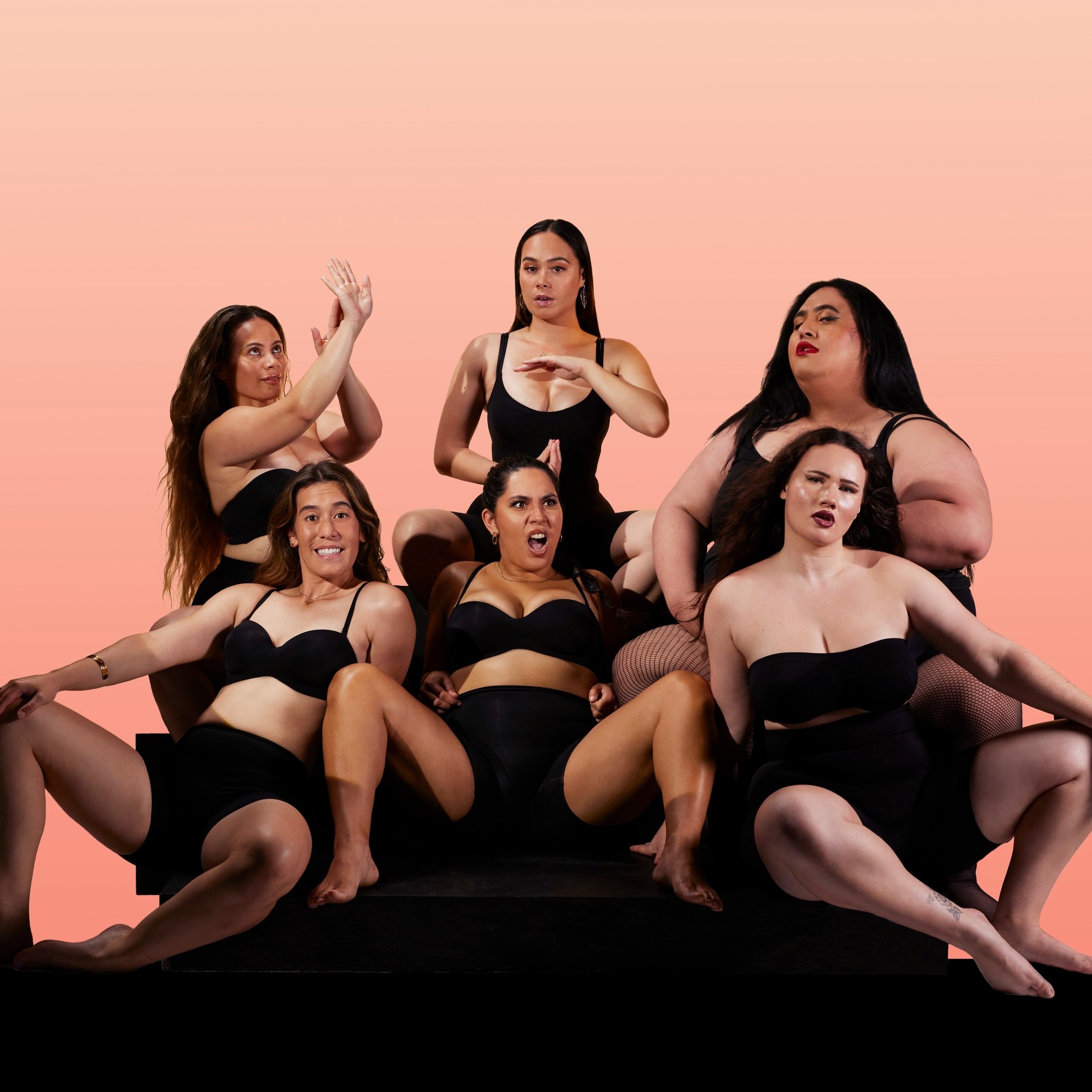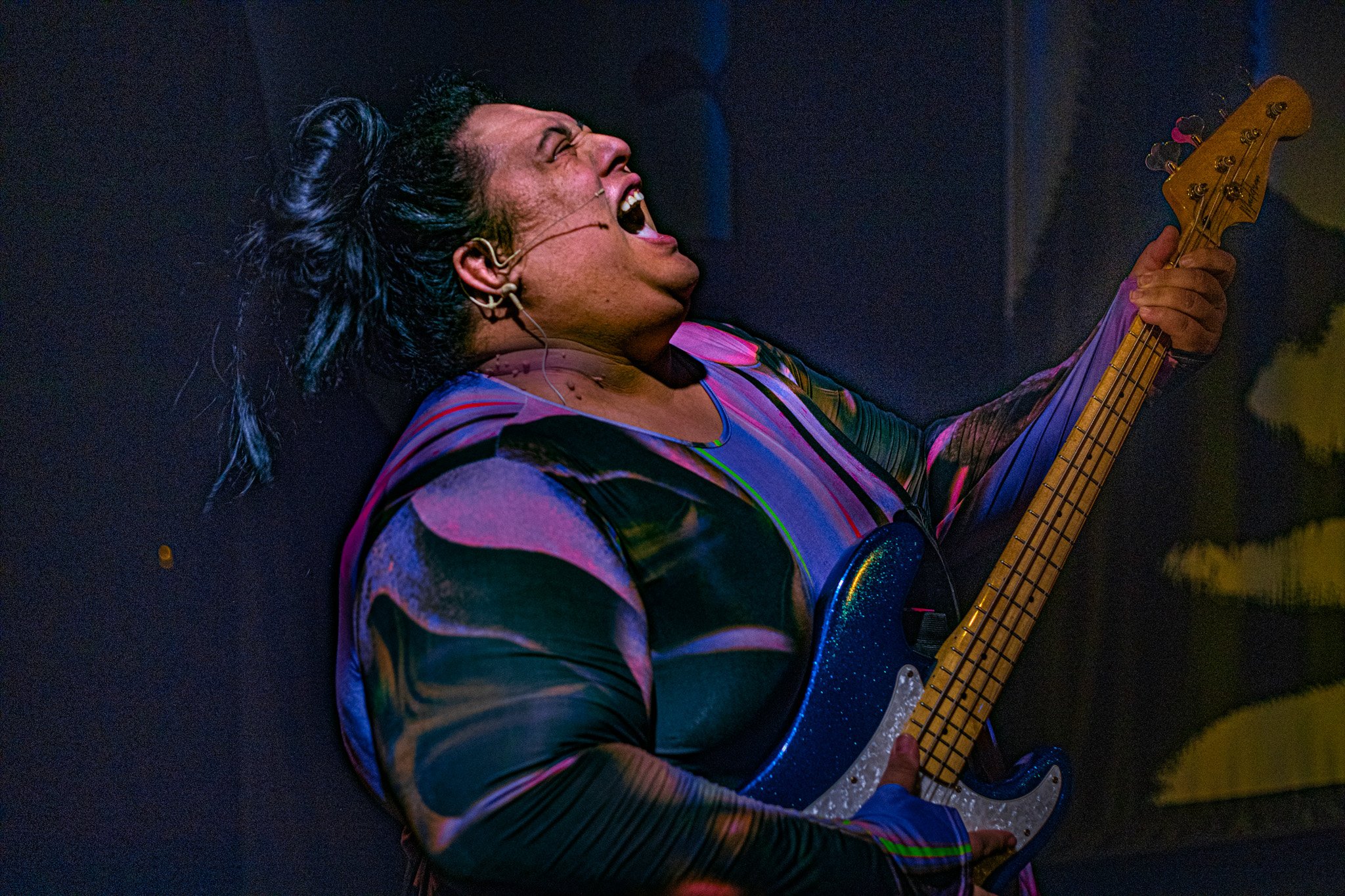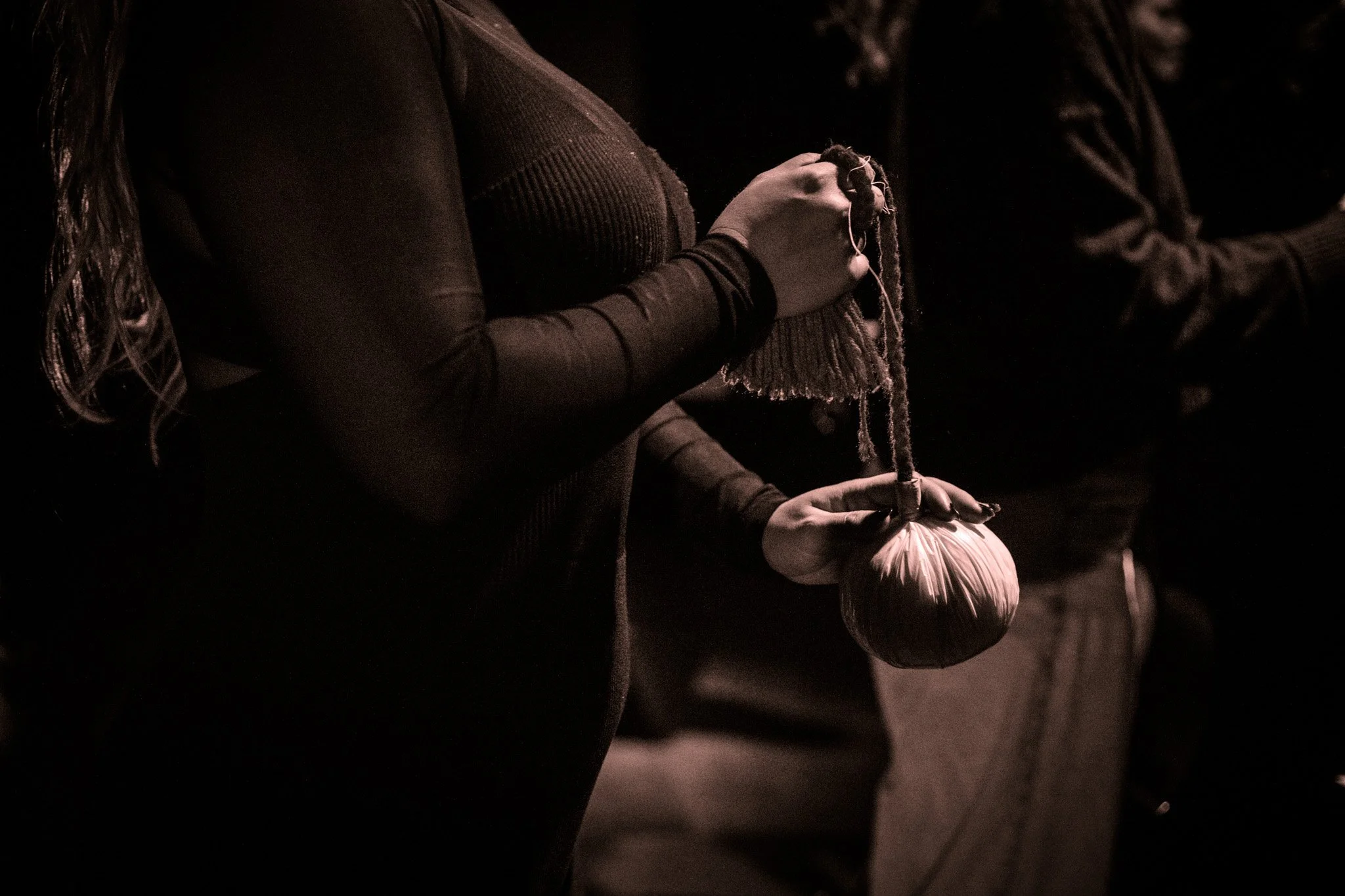THEATRE REVIEW: Kōpū
Wit, waiata and Whitney Houston; Kōpū is the riotous and empowering thrill ride through the experiences of wāhine Māori that everyone needs to see. A whirlwind of a production, the six-strong cast expertly blend poetry, kapa haka, live music and poi into a collection of hilarious, moving and honest accounts of wahinetanga today.
The atmosphere at Te Pou Theatre’s newly built whare is electric and as the house lights dim and the audiences hushes, performer and writer Tuakoi Ohia is illuminated by a spotlight and the whakatau begins. Ohia cuts through the silence as she proclaims proudly that the kupu ‘wāhine’ cannot be directly translated into English, or te reo Pākehā; it cannot be considered an offcut of man but is a word endowed with it’s own unique power- wāhine are a force to be reckoned with, so whakarongo mai!
Kōpū has been in developement since 2021, but was put on hold due to the pandemic, so its official opening now two years later is a much-anticipated declaration of the power of wāhine Māori. With Auckland Theatre Company’s Witi’s Wāhine opening the day before (another celebration of wāhine Māori on stage) it feels like the time is now for this korero to be brought to the forefront. That is not to say that the voice of wāhine has been absent til now, however its presence within our tikanga has been criticised and overshadowed in recent years. Notably at Waitangi in 2021, National MP Judith Collins complained about not being able to speak on the marae. Kōpū director Amber Curreen recalls the frustration around Collins’ comments, highlighting that all too often in this matter the “voice of wāhine māori [gets] drowned out by Pākehā”, and the significant roles of wāhine on the marae are overlooked and instead viewed through a ‘white feminist’ lens.
As a dual English, Pākeha, wāhine Māori, I knew that my identity demons would make an appearance as soon as I stepped into the whare, mocking my patchy reo and reminding me that I didn’t grow up integrated in the marae as my siblings did. But as the show begins, I realise that these critical notions are exactly what these wāhine are trying to dispel - It wasn’t about judgement or shortcomings, but celebrating and uplifting wāhine of all walks.
The show is separated into chapters, each one as well-crafted as the next. In the first half an hour we are transported from a meeting of Atua, to France, to the wharekai where performers Jane Leonard, Brady Peeti and Te Arohanui Way-Korewha are peeling potatoes to Beethoven’s 5th Symphony. Their peeling becomes progressively more competitive as the music crescendos with one of them cutting a finger, leaving us in proverbial stitches. What was so magical about this scene was that you can literally see the ripples amongst the audience as they recognise themselves or their whanau in these characters.
A highlight was Kōpū’s liberal and unashamed korero surrounding sex - I have never heard the word ‘teke’ thrown around so much and we were all here for it. At one point, three of the cast balance on yoga balls while answering questions from a jar, including “favourite position” to which Ohia, Peeti and Leonard all erupt into laughter and avert their eyes from their Nannies in the audience. This unscripted interlude adds a different dimension to a show that feels accessible, human and inspiring and the beauty of this part is that it will be different every night.
Kōpū does not shy away from the depth and diversity of the experiences of wāhine Māori, including the darker shades. In a stand-out scene, performer Te Huamanuka Luiten-Apirana raps about the frequent mis-pronunciation of her name. Luiten- Apirana’s brilliant writing and performance has us all clicking in agreement that ay, those who won’t roll their r’s could go “whakapapa” themselves.
The show’s most special quality is the seamless collaboration between the performers and the technical designers and practitioners. One of the most poignant examples of this is Chapter Nine - Ira Tāne, which blends spine-tingling choreography from Kura Te Ua, sound from Paige Pomana and lighting by Jane Hakaraia. This scene also making spectacular use of John Verryt’s floor-to ceiling backdrops that silhouette the cast as they dance, framing then revealing them in all their mana. Equally moving and the perfect scene to follow, saw Brady Peeti confidently cat-walking across the stage, singing Whitney Houston’s ‘I Wanna Dance With Somebody’, only for the song to climax leaving Peeti’s wish ungranted and her left alone on stage.
A scene that made me want to immediately pick up the poi, was a joyful depiction of three exasperated rangatahi desperate to improve their poi skills like the wāhine they see on TV. With sharply written dialogue, laced with all the relatable insecurities you’d expect (or remember), they call upon the “Poi Fairy Witches” for help. Dressed in wings and swinging their poi seductively, performers Ngākirikiri Kershaw, Te Arohanui Way-Korewha and Tuakoi Ohia saunter onto the stage. A charming interaction between the young and older wāhine ensues, encapsulating the struggles of growing up; the Poi Fairy Witches teaching the girls that “everybody” can be good at poi and I elbow my identity demons as hard as I can in the ribs.
The standing ovation as the show draws to a close says it all, and I leap up with such pride and a renewed sense of what ‘wāhine’ means to me. It’s the whole combination of flawless performances, dynamic design and it’s empowering kaupapa that makes this show so special. Kōpū not only celebrates the wāhine Māori experience but sticks two manicured fingers up at anyone who doubted our power to begin with. I implore you to take your friends, your whanau, your own sense of self to see this show and I defy anyone that doesn’t come out feeling empowered and with their sides slightly hurting.
■
Performers: Ngākirikiri Kershaw, Tuakoi Ohia, Brady Peeti, Te Huamanuka Luiten-Apirana, Te Arohanui Korewha, Jane Leonard
Writers: Tuakoi Ohia, Brady Peeti, Ngakirikiri Kershaw, Te Arohanui Way-Korewha, Jane Leonard
Director: Amber Curreen
Musical Director: John Gibson
Dramaturge: Tainui Tukiwaho






